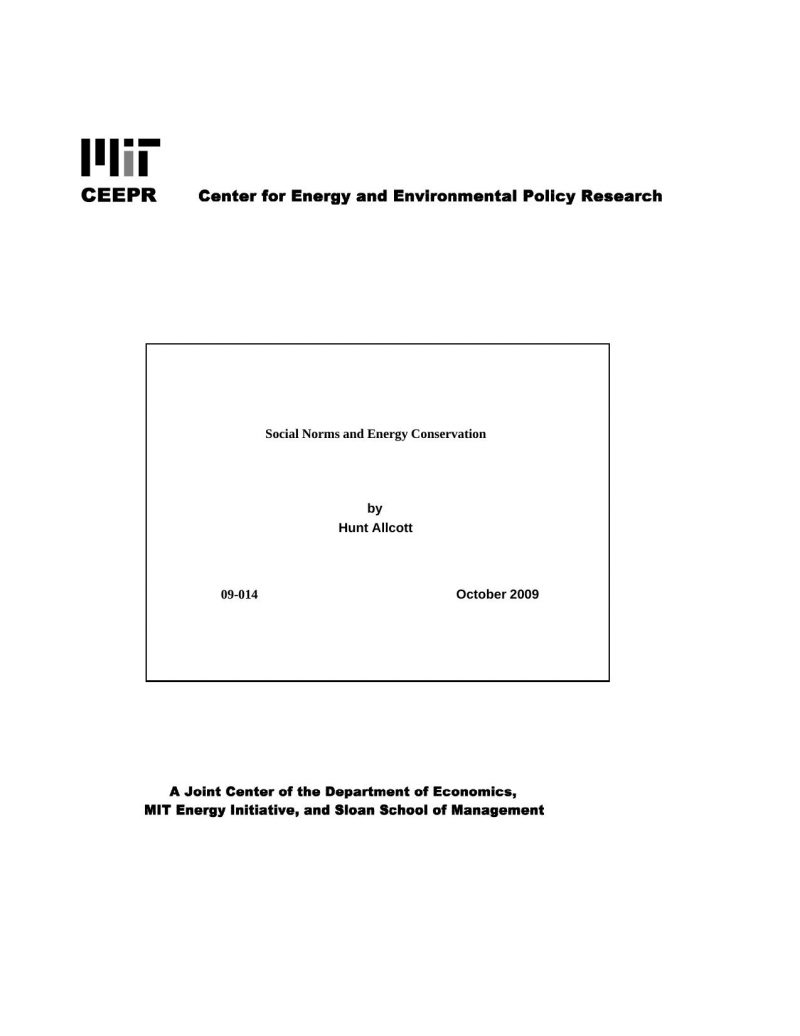Social Norms and Energy Conservation
Hunt Allcott
09-Oct
This paper evaluates a pilot program run by a company called OPOWER, previously known as Positive Energy, to mail home energy reports to residential utility consumers. The reports compare a household’s energy use to that of its neighbors and provide energy conservation tips. Using data from randomized natural field experiment at 80,000 treatment and control households in Minnesota, I estimate that the monthly program reduces energy consumption by 1.9 to 2.0 percent relative to baseline. In a treatment arm receiving reports each quarter, the effects decay in the months between letters and again increase upon receipt of the next letter. This suggests either that the energy conservation information is not useful across seasons or, perhaps more interestingly, that consumers’ motivation or attention is malleable and non-durable. I show that “profiling,” or using a statistical decision rule to target the program at households whose observable characteristics suggest larger treatment effects, could substantially improve cost effectiveness in future programs. The effects of this program provide additional evidence that non-price “nudges” can substantially affect consumer behavior.



